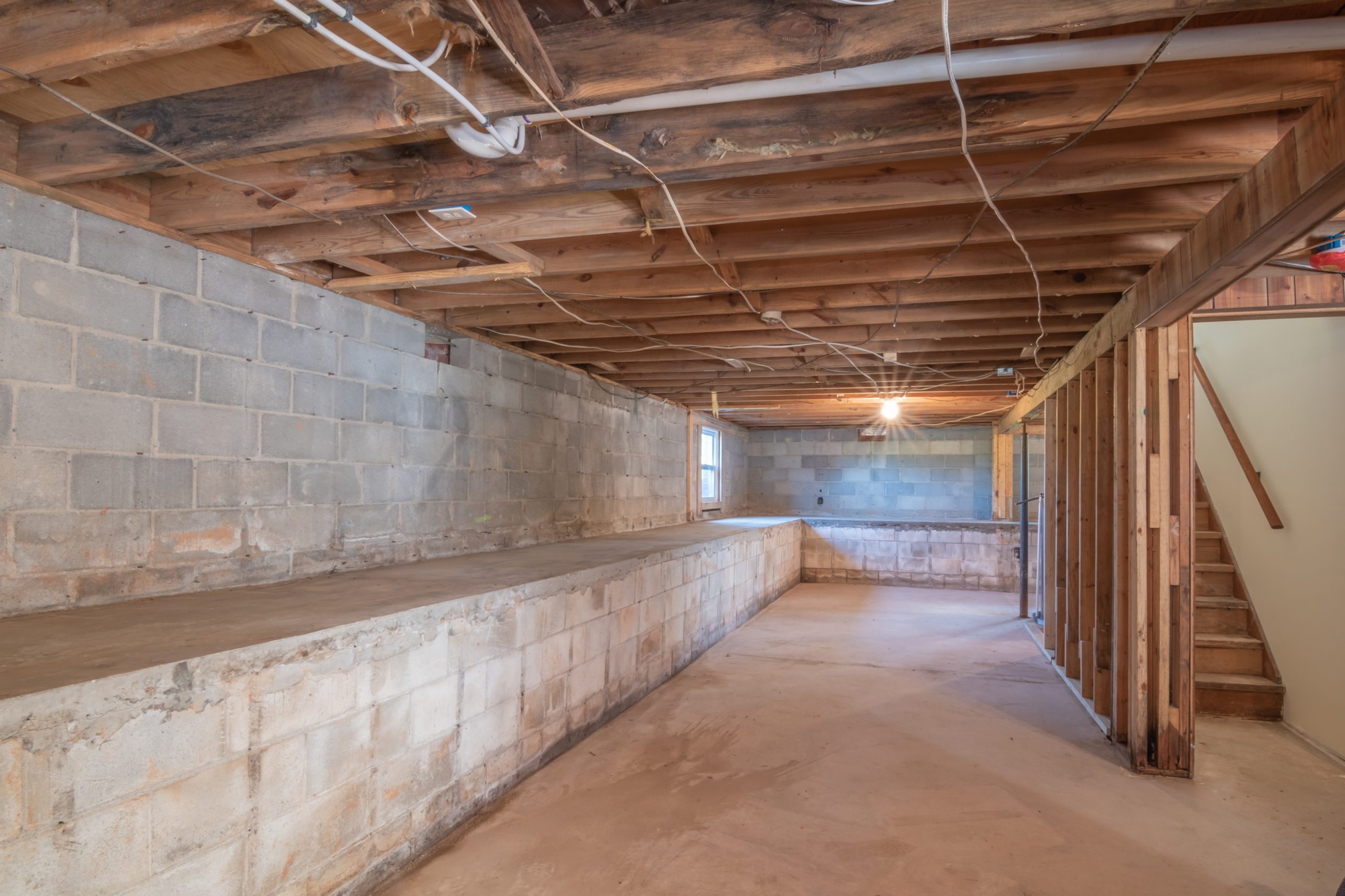July 1st, 2021. Tom Lee
Go Low: Are Basement Developments a Solid Investment?
A recent Times article claimed the trend for basement developments was no more. So, are properties with basements still desirable? Are they worth homeowners’ and developers’ time and money?

Superbasements aren’t anything new. They’ve been a major investment of the UK rich list for many years now, and are a popular method of making the most of prime real estate. However, they sometimes make headlines for the wrong reasons. For instance, who can forget when the former Phones4U boss David Kassier’s £3.5million mansion collapsed in 2015 while building an ambitious subterranean expansion?
What Are the Benefits of Basement Construction?
Of course, not all basements are ‘mega’ or ‘super’. The majority of basement applications made in the UK are for modest expansions. For example, to accommodate a growing family with extra sleep space, parking, or storage areas.
Iceberg-style basements are rare, but their impressiveness tends to get attention – even if, unlike the aforementioned Phones4U project, they don’t end in disaster.
Whether modest or mega, there are many benefits to building a basement space, including:
- Added space – for living, storage or parking without the need to move or extend upwards or outwards. They are particularly handy on sloping sites which otherwise would need levelling.
- Privacy – basements can be fitted with their own entrance, making them ideal for ‘granny flats’ and private spaces.
- Added value – more space means a higher property value.
- Improved efficiency – a study by The Basement Information Centre found that properties with basements are up to 10% more thermally efficient than homes built entirely above ground.
Why the Decline?
Statistics from Barbour ABI reveal that in 2014 there were 869 basement applications in Kensington and Chelsea, but in 2020 this number had fallen to 54. A similar drop can be seen for the Westminster area: in 2014 there were 381 applications, but just 30 in 2020.
So, why have there been fewer applications? It is fair to say a number of factors have contributed to this decline.
Covid-19 – For much of 2020 we were in lockdown and construction screeched to a halt in the spring. Therefore, we would expect to see figures being down for this year.
The Economy – With the uncertainty of the pandemic and Brexit, some people are becoming more wary of spending.
Government Schemes – Traditionally, building a basement proved much more cost effective than moving home. However, with the Stamp Duty holiday the government introduced to kick-start the housing market following the first lockdown, moving home became much more affordable and desirable.
As the scheme ends on June 30th 2021, it will be interesting to see whether a reversion is made, with a slowing of the market and a rise in building applications.
Planning Restrictions – Due to their proliferation around 2014/2015 and the potential disruption their construction can cause, some areas have put stricter regulations in place for basement developments. For example, the Basement Excavation (restrictions of Permitted Development) Bill and the Planning (Subterranean Development) Bill.
What Are the Basement Building Regulations?
Building regulation approval is required for all basement construction, extension, or conversion.
According to UK building regulations, a ‘basement storey’ is a storey which at some point is more than 1.2m below the highest level of ground adjacent to the outside walls. Unlike a cellar which is used for storage purposes only, a basement is defined as habitable space.

The type of planning permission you require will depend on the extent of the project and the current state of the property. And, the regulations and ease of approval will vary depending on the council you apply to.
For example, basement permitted development rights may be possible if the space already exists and you simply want to convert it into residential, habitable rooms – i.e. putting up dividing walls and fitting plumbing.
However, if a new basement will be created and will require excavations, planning permission will be required.
Basement building regulations will apply to all planned projects. This includes areas such as:
- Electrical wiring
- Water supply and plumbing
- Ventilation
- Drainage and damp proofing
- Ceiling heights
- Underpinning and foundations
- Fire safety
Furthermore, if you have an adjoined or shared walls, the Party Wall Act 1996 and a right of support will likely apply.
So, Is Building a Basement a Money-Maker?
Well, that really depends on a case-by-case basis. If you’re looking to sell on soon, then keep an eye on expenditure to ensure a positive ROI as excavations can be expensive. However, in general, more space usually proves profitable in the long-term.
If you’re considering a basement project, but lack the funds to bring it to fruition, get in touch with our friendly and knowledgeable team to discuss your residential development finance options today.
Article By Tom Lee
July 1st, 2021
Tom is one of the founding members of the company and has been a part of the Pure Group since 2013 playing an integral part of the business’s growth and direction.
He had over 10 years of experience in the real estate financial sector prior to joining Pure with a major bank. Tom has a wealth of experience providing debt advisory on large, complex deal structures for developers and investors across all asset classes, throughout the UK and parts of Europe.
He has built a strong network across the property and finance sector, which enables him to provide a total package solution to his clients and contacts, with whom he has built long standing relationships.
Email: tom@purestructuredfinance.co.uk
Follow Tom on LinkedIn here.
See more articles by Tom